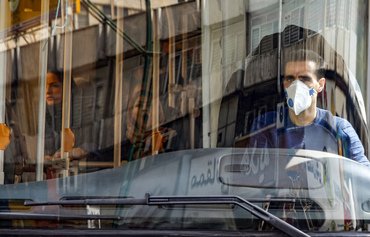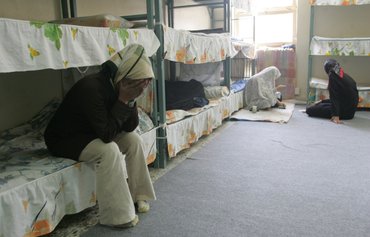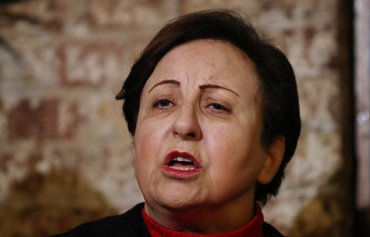Iran's government has ignored repeated requests from senior prison officials for help in containing coronavirus in the country's overcrowded jails, Amnesty International said Friday (July 31st).
But even as it has ignored these requests, the Islamic republic has found funds for a large-scale military exercise in Gulf waters, near the Strait of Hormuz.
Amnesty said it reviewed copies of four letters to the health ministry signed by officials at Iran's Prisons Organisation, "raising the alarm over serious shortages of protective equipment, disinfectant products, and essential medical devices".
The ministry "failed to respond, and Iran's prisons remain catastrophically unequipped for outbreaks," the London-based rights group said in a statement.
![An Iranian woman, wearing a protective face mask, walks down a street in Tehran on July 22nd, during the COVID-19 pandemic. [Atta Kenare/AFP]](/cnmi_am/images/2020/07/31/25274-Iran-masked-woman-600_384.jpg)
An Iranian woman, wearing a protective face mask, walks down a street in Tehran on July 22nd, during the COVID-19 pandemic. [Atta Kenare/AFP]
Iran has been battling to contain the novel coronavirus (COVID-19) outbreak since announcing its first cases on February 19th. Authorities have confirmed over 16,000 deaths in the Islamic republic to date.
Amnesty said the head of the health care office at the Prisons Organisation had first submitted a letter to the health ministry requesting help on February 29th, with follow-up letters sent on March 25th, May 12th, June 14th and July 5th.
The March letter had requested disinfectant products and protective equipment to last three months, including one million litres of surface disinfectant and 5.4 million masks, Amnesty said.
'Failure to protect prisoners'
"These official letters provide damning evidence of the government's appalling failure to protect prisoners," said Diana Eltahawy, Amnesty International's deputy regional director for the Middle East and North Africa.
Amnesty said the letters "stand in stark contrast" to public statements by the advisor to the head of the judiciary, Asghar Jahangir, who has lauded Iran's "exemplary" initiatives to protect prisoners from the pandemic.
The rights group said it had "received distressing reports of prisoners displaying COVID-19 symptoms being neglected for days, even when they have pre-existing heart and lung problems, diabetes or asthma".
"When their conditions worsen, many are merely quarantined in a separate section in the prison or placed in solitary confinement, without access to adequate health care," the rights group alleged.
Since March, more than 100,000 detainees in Iran have been granted temporary release or sentence remissions to help limit infections in prisons.
But a UN group of experts said this month that released inmates were now being returned to prison, despite a second wave of the virus in the country.
"We once again call on Iranian authorities to urgently address overcrowding in prisons, including by immediately and unconditionally releasing all those detained for the peaceful exercise of their rights," Eltahawy said.

![A picture taken September 2nd, 2014 in the Iranian capital Tehran shows bronze statues displayed in the courtyard of Qasr prison, a former prison hosting political prisoners that was turned into a museum in 2012. [Atta Kenare/AFP]](/cnmi_am/images/2020/07/31/25273-Iran-Qasr-prison-600_384.jpg)






